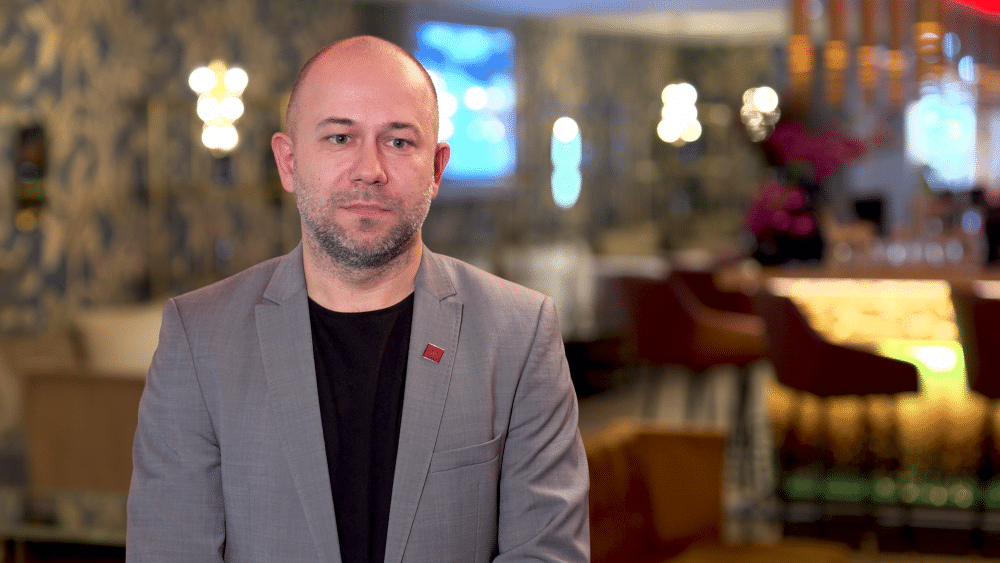In the hotel industry, there is a clear post-pandemic revival. According to Cushman & Wakefield, the year 2023 saw a consistent increase in key indicators related to hotel performances in Poland, mainly due to the strengthening of domestic demand. This positive situation is expected to continue this year, which will also see a recovery in the number of overnight stays given to foreign guests. However, hotel markets in big cities are mainly recovering due to returning events and happenings.
“The year 2023 was demanding. Occupancy in hotels was higher than in 2022, and the clients were diverse – there were a lot of tourist clients during the holidays, and in the off-season, we also had many corporate clients. There were also many events in Warsaw, hence there were many dates when practically the whole capital was full and it was very hard to get a free room,” says Kamil Sawicki, Cluster Poland convention sales manager at Leonardo Hotels.
According to the Emmerson Evaluation report (“Hotel and condohotel market in Poland 2023”), the last three years have been a challenge for the Polish hotel market mainly due to COVID-19 restrictions and historically record inflation, which peaked at the beginning of 2023. This, along with increasing energy prices and labor costs, resulted in the need to raise accommodation prices. However, this does not equate to higher profits in the industry, as rising costs of maintaining properties and employee wages have, in many cases, reduced real profits for hotel owners.
“The current inflation is unfortunately affecting hotel prices. Materials and food are constantly becoming more expensive, labor costs are also increasing, so hoteliers have to raise the prices of their accommodation, restaurant, or conference services,” says Kamil Sawicki. “Economic fluctuations also affected our guests and clients. We notice that clients often try to shorten their stays or negotiate the lowest possible price for a hotel stay. We have also noticed that they spend less money on inside hotel services.”
One of the effects of rising hotel prices is the shortening of trips and booking them at the last minute. Currently, the hotels that are in the best situation are economical and three-star hotels. On the other hand, luxury hotels still enjoy great interest, which means that there is a group of customers who, even in times of high inflation, are willing to pay more for a rest in an exclusive place.
“The market is constantly changing, it is very dynamic, guests also change and we have to follow them. Currently, we notice that guests want to be treated very individually from beginning to end – from the moment of booking, during the stay in the hotel, until check out,” says the expert from Leonardo Hotels.
According to the December report “Trends Radar. Real Estate on the Wave of Changes” by Cushman & Wakefield, despite inflationary challenges, hotels remain profitable. Statistics cited by the authors from HotStats indicate that total costs in hotels in Warsaw increased by 25-30% per room in the period of January-September 2023, but thanks to strong revenue growth, gross operating profit increased by 7-17% compared to the same period in 2019.
Despite the difficult environment, the hotel industry experienced a bounce back in 2022. Initially, predictions were pessimistic – for the first months of the year, many facilities provided their rooms for refugees from Ukraine fleeing the war, and foreign guests fearing the escalation of the conflict cancelled their holidays in Poland. The holiday period, however, was intense for the hotel market due to a large number of tourists spending their holidays in their home country – the traffic was generated mainly by Polish tourists resting with their families. In contrast, the second half of 2022 brought good results due to the increased number of business meetings – hotels are often the chosen place for corporate events, conferences, and congresses. As a result, the revenues and results generated by this sector were similar to those before the pandemic in 2019.
The revival in the hotel industry is also confirmed by the December report from Cushman & Wakefield, which shows that in 2022 the hotel sector recorded a 23% year-on-year increase in overnight stays. Projections for 2023 assumed a further increase of about 5%. According to the company’s analysts, last year the Polish hotel market saw a consistent increase in demand and key performance indicators, mainly due to the strengthened domestic demand. This positive situation is likely to continue in 2024, when a rebound in the number of overnight stays granted to foreign guests is also expected.
“We predict that occupancy this year will be higher than last year. In Warsaw, we noticed an increased number of cultural and sports events, so we forecast more guests in the capital,” says Kamil Sawicki.
Summer months will be particularly intense in this regard – in July, Scorpions and Europe will play at the PGE National, and in August, there will be three concerts by Taylor Swift and two by Metallica.
However, a lot depends on the business client. In large cities, hotel markets are mainly rebuilding thanks to returning events and happenings. This is evident in the “Trends Radar” report example of the capital. At the end of the third quarter of 2023, Warsaw hotels noted a significant increase in demand generated by companies – the number of overnight stays constituted 81%, and revenues related to business demand 98% compared to the levels of 2019. On the other hand, the conference demand in Warsaw’s hotels increased in this time by almost 20% YoY, although it was still 25% lower than in the pre-pandemic 2019.
